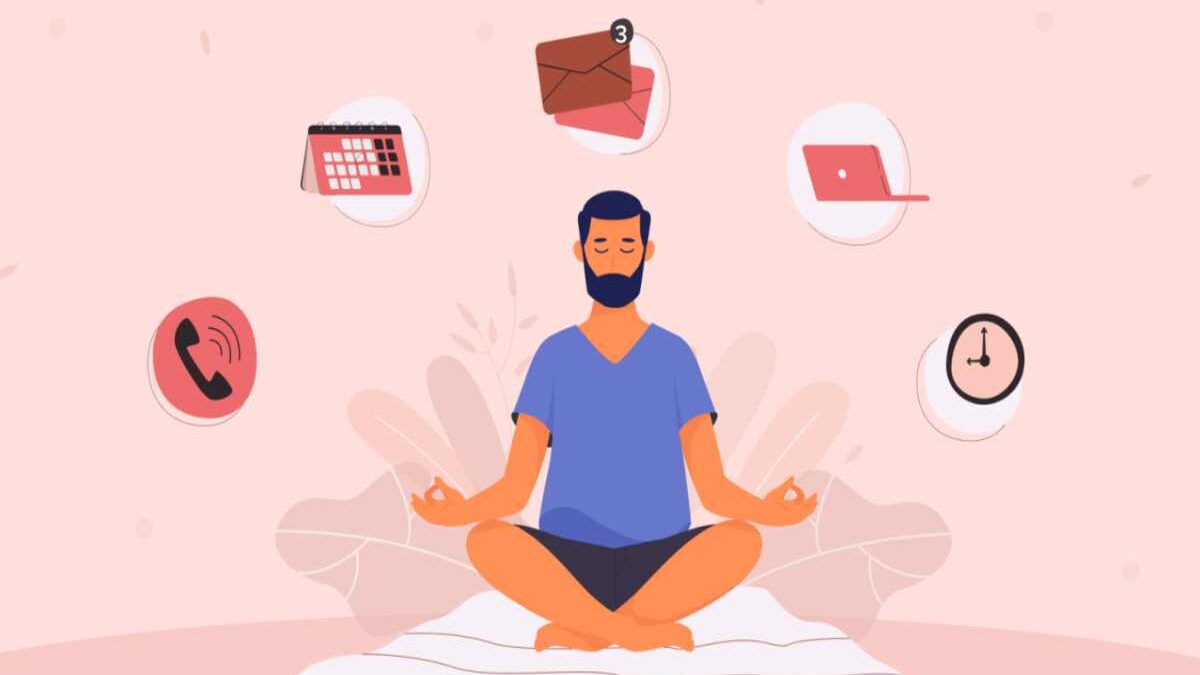Wellhealthorganic Stress Management
Table of Contents
Understanding Stress and Its Impact
Stress is how the body reacts to tough or challenging situations. A little stress can sometimes help us stay alert and focused. But when stress lasts for too long, it can harm both the body and the mind. Long-term stress can cause health problems like heart issues, weak immunity, and mental health struggles such as anxiety and depression.
Physical Effects of Chronic Stress
When we feel stressed, the body releases hormones like cortisol and adrenaline. These hormones help in short bursts, but too much of them over time can cause:
-
High blood pressure
-
Stomach and digestion problems
-
Muscle pain and tension
-
Trouble sleeping
-
Weakened immune system
Mental and Emotional Effects
Stress doesn’t just affect the body; it affects the mind too. Long-term stress can lead to:
-
Anxiety and depression
-
Trouble focusing or remembering things
-
Feeling emotionally drained
-
Mood swings and irritability
Natural Stress Management Techniques
Mindfulness and Meditation
Mindfulness means paying attention to the present moment without worrying about the past or future. Meditation and mindfulness can:
-
Lower anxiety
-
Improve focus and clarity
-
Help you control emotions better
Physical Exercise
Exercise is one of the best ways to reduce stress because it:
-
Releases endorphins (the body’s “happy” chemicals)
-
Improves sleep
-
Relaxes tense muscles
-
Boosts energy and alertness
Nutrition for Stress Management
Eating healthy food supports both body and mind. Some helpful foods include:
-
Whole grains and complex carbs (boost serotonin for better mood)
-
Omega-3 fatty acids (good for brain health)
-
Foods with vitamin B (help with energy)
-
Magnesium-rich foods (help with sleep)
Creating a Stress Management Routine
Time Management
Organizing your time helps lower stress. You can:
-
Set realistic goals
-
Break big tasks into smaller steps
-
Delegate work when possible
-
Keep a balance between school/work and personal life
Social Support and Connection
Talking and spending time with others reduces stress. You can:
-
Stay connected with friends and family
-
Join support groups or clubs
-
Talk to a professional when needed
-
Do fun hobbies and social activities
Sleep Hygiene
Good sleep is key to handling stress. Try to:
-
Go to bed and wake up at the same time each day
-
Have a calm bedtime routine
-
Keep your room quiet and comfortable
-
Avoid screens before sleep
Advanced Stress Management Techniques
Cognitive Behavioral Strategies
This means changing negative thought patterns into positive ones by:
-
Noticing negative self-talk
-
Replacing it with healthier thoughts
-
Practicing problem-solving
-
Building emotional strength
Relaxation Techniques
Some methods to calm the body and mind are:
-
Deep breathing
-
Muscle relaxation exercises
-
Guided imagery (visualizing calm places)
-
Yoga or stretching
Long-Term Stress Management
Building Resilience
Resilience means bouncing back from challenges. You can build resilience by:
-
Learning from past experiences
-
Keeping a positive mindset
-
Adapting to change
-
Staying hopeful
Creating Healthy Habits
To manage stress over time, try to:
-
Practice stress-relief activities regularly
-
Check in with yourself often
-
Maintain balance between work and rest
-
Set achievable goals
Prevention and Maintenance
Regular Health Check-ups
Keep track of your health by:
-
Visiting your doctor for check-ups
-
Watching for stress-related symptoms
-
Acting early if problems appear
-
Following your doctor’s advice
Environmental Changes
Your surroundings can affect stress. To reduce it:
-
Keep your space clean and organized
-
Reduce noise and clutter
-
Add calming natural elements
-
Make a space just for relaxation
Conclusion
Managing stress means taking care of both body and mind. By practicing healthy habits like exercise, mindfulness, good sleep, and positive thinking, anyone can reduce stress and build resilience. Remember, stress management is personal — find what works best for you and practice it regularly for a healthier, happier life.

